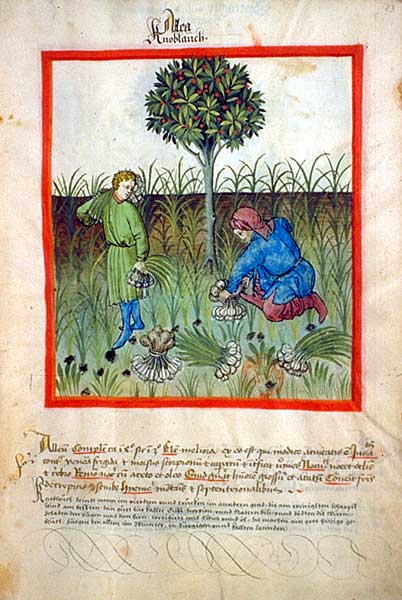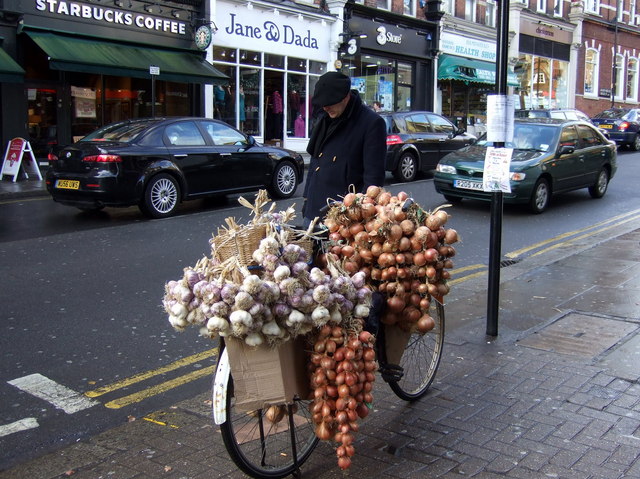Aldhelm Riddle 85: Caecus natus
ALEXANDRAREIDER
Date: Thu 14 Apr 2022Iam referam verbis tibi, quod vix credere possis,
Cum constet verum fallant nec frivola mentem.
Nam dudum dederam soboli munuscula grata,
Tradere quae numquam poterat mihi quislibet alter,
Dum Deus ex alto fraudaret munere claro,
In quo cunctorum gaudent praecordia dono.
Now I shall relate in words to you what you will hardly be able believe,
Though it is the truth and not follies that cheat the mind.
For once I gave welcome little gifts to my son,
Which no one else was ever able to give me,
Because God from on high deprived me of the bright gift,
The gift in which the hearts of all are glad.
Notes:
This edition is based on Rudolf Ehwald, ed. Aldhelmi Opera Omnia. Monumenta Germaniae Historica, Auctores Antiquissimi, 15. Berlin: Weidmann, 1919, pages 59-150. Available online here.
Tags: riddles latin Aldhelm


Commentary for Exeter Riddle 85
MEGANCAVELL
Date: Thu 18 Jul 2019Matching Riddle: Exeter Riddle 85
Riddle 85 tells a story that we all know well: fish can’t survive out of water. I think there may even be a saying about that…
Here is a nice Carp Bream via Wikimedia Commons (public domain)
This riddle topic is found around the world and in many different historical contexts, so we can be fairly certain of its solution (Bitterli, page 14). The first recorded instance seems to be that of the 4th/5th-century North African riddler Symphosius. His Latin Enigma 12, Flumen et Piscis (River and Fish) reads:
est domus in terris clara quae voce resultat.
ipsa domus resonat, tacitus sed non sonat hospes.
ambo tamen currunt hospes simul et domus una. (Leary, page 41)
(There is a house on earth that rebounds with a clear voice.
The house itself resounds, but its silent host does not make a sound.
Nevertheless, both the host and the house travel together at the same time.)
Pretty similar to Riddle 85, right? We have a noisy house and a silent inhabitant traveling together. Here the inhabitant is a hospes (host…or guest for that matter), which is a little different from our Old English riddle, but it’s still much of a muchness.
There’s another – much shorter this time – Latin version that makes use of the same motif in Alcuin of York’s fabulously titled Disputatio regalis et nobilissimi iuvenis Pippini cum Albino scholastico (Debate between the regal and noble youth Pippin and Alcuin the scholar). Alcuin wrote this prose debate with its many puzzles and riddles for Pippin, the son of Charlemagne, likely when he was working at the Carolingian court from the years 781-794 (Bitterli, page 13). I *really* like this version because the Pippin of the text is a cheeky little thing:
A. Vidi hospitem currentem cum domo sua, et ille tacebat et domus sonabat.
B. Para mihi rete, et pandam tibi. (Alcuin, page 142, number 98)
(Alcuin: I saw a host travelling with his house; he was silent, and his house resounded.
Pippin: Get a net for me, and I will lay it out for you.)
Pippin is saying that he knows full well where to look for the solution to this riddle. And his command to get him a net hints at the death of the fish, which he jokes about removing from its watery habitat.
When it comes to Riddle 85, I like to think that this watery habitat is evident in the repeated sounds that snake their way through the poem. There are a heck of a lot of ‘s’ and ‘sh’ and ‘ch’ sounds (in Old English ‘sc’ is pronounced ‘sh’ and ‘c’ is often ‘ch’), echoing the noisy, rushing river described in the opening lines. But then we reach the final line’s hard ‘d’s, which slow the rushing water to a standstill, linking gedælað (are divided) and deað (death) in the process. The sonic play of this poem is DEEP, guys.
And the fish’s death is an innovation of the Old English poet – no OE poem is complete without a good helping of angst! Hence, death is the focus of the final lines. The fish – now the speaker rather than mere subject of the riddle – muses: Ic him in wunige a þenden ic lifge; / gif wit unc gedælað, me bið deað witod (I always dwell within him for as long as I live; if we two are divided, death is certain for me). Just as the water back in Riddle 77 protected the oyster from voracious humans, here the river is life-sustaining for the fish. But it’s more than that: this animal and its habitat share a symbiotic existence, a common siþ (journey). They’re linked firmly together by the fabulous dual pronouns unc and wit, pronouns whose meaning – “the two of us” – suggests an especially close bond. And the animal/habitat are also linked in that the riddle, as Marie Nelson puts it, “has a strangely compound single subject. There is a solution, but it is fish and river, two identities so dependent that they seem one” (page 611). Two become one.
The journey of the fish and river is placed firmly within a Christian framework, as the fish-speaker (good compound, that!) proclaims that dryhten (the lord) created both the animal and its home. This and the poem’s focus on unity vs separation and life vs death has led to the suggestion of an alternate solution: Soul and Body (Orchard, page 294; Murphy, page 20). Poems about the soul and body are pretty common in Old English, and the idea that one lives within the other – often rather unwillingly! – comes up time and time again. See, for example, Soul and Body II (full translation here), which lives in the same manuscript as Riddle 85:
Eardode ic þe in innan. No ic þe of meahte,
flæsce bifongen, ond me firenlustas
þine geþrungon. (lines 30-2a)
(I lived within you. Nor was I able get out of you,
surrounded by flesh, and your sinful pleasures
oppressed me.)
Yeah, I can see how this is similar to Riddle 85, apart from the fact that the body does the soul wrong (earthly temptations and all that), while the river is essential to the fish. So it’s more likely, as Patrick Murphy argues, that a soul-and-body metaphor is being used to give this riddle about a fish and river a little extra something something…my words, not his (page 20).
With that in mind and with the prospect of my own river-side holiday looming large, I’m going to leave you to ponder this riddle on your own now.
Here, have some nice, ambient background sounds as you go:
References and Suggested Reading
Alcuin. “Disputatio regalis et nobilissimi juvenis Pippini cum Albino scholastico.” In Altercatio Hadriani Augusti et Epicteti Philosophi. Edited by Lloyd William Daly and Walther Suchier. Urbana, IL: University of Illinois Press, 1939, pages 134-46.
Bitterli, Dieter. Say What I am Called: The Old English Riddles of the Exeter Book and the Anglo-Latin Riddle Tradition. Toronto: University of Toronto Press, 2009, esp. pages 14-18.
Leary, T. J., ed. Symphosius: The Aenigmata: An Introduction, Text and Commentary. London: Bloomsbury, 2014.
Murphy, Patrick. Unriddling the Exeter Riddles. University Park, PA: Pennsylvania State University Press, 2011, esp. pages 19-20.
Nelson, Marie. “The Paradox of Silent Speech in the Exeter Book Riddles.” Neophilologus, volume 62, issue 4 (1978), pages 609-15.
Orchard, Andy. “Enigma Variations: The Anglo-Saxon Riddle-tradition.” In Latin Learning and English Lore: Studies in Anglo-Saxon Literature for Michael Lapidge. Edited by Katherine O’Brien O’Keeffe and Andy Orchard (Toronto: University of Toronto Press, 2005), pages 284-304.
Tags: anglo saxon exeter book riddles old english solutions riddle 85 latin
Related Posts:
Commentary for Exeter Riddle 77
Exeter Riddle 77
Exeter Riddle 85